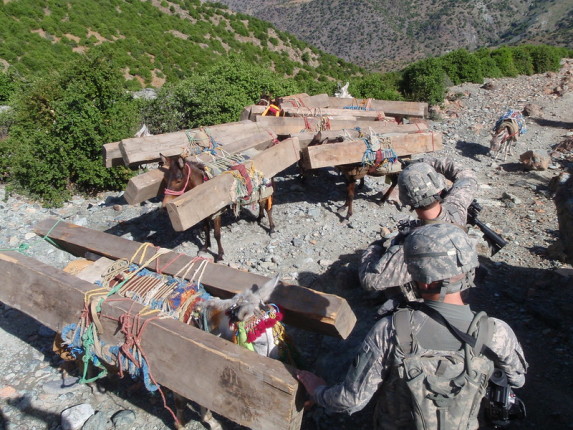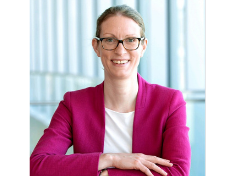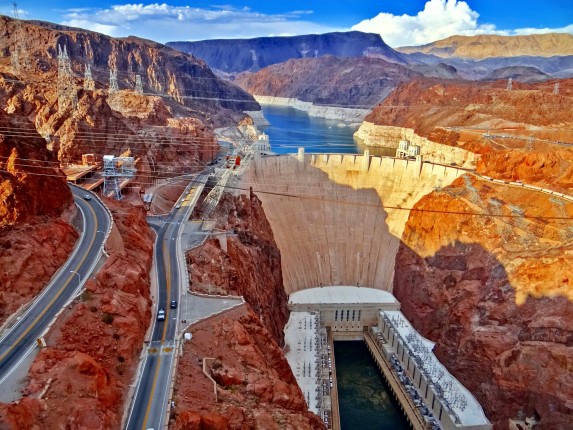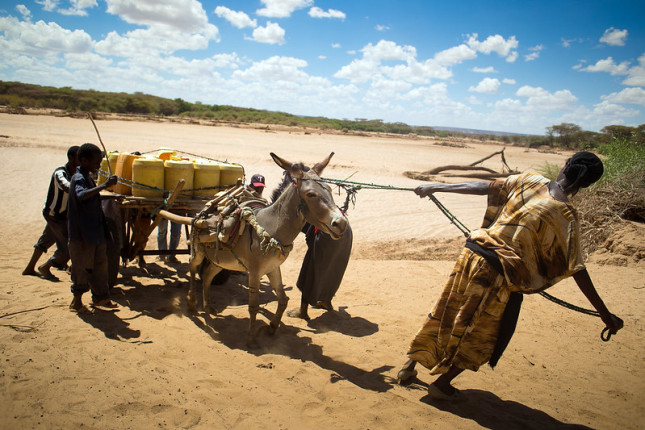-
The Cost of Care: How the COVID-19 Pandemic Has Exacerbated the Baby Bust
› The decision to have a child usually requires a feeling of stability and confidence in the future, says Natascha Braumann, Director of Global Government and Public Affairs for Fertility at EMD Serono, on this week’s episode of Friday Podcasts. But with COVID-19, especially in the first months of the pandemic, there was no feeling of stability. “No one knew what was going to happen.”
The decision to have a child usually requires a feeling of stability and confidence in the future, says Natascha Braumann, Director of Global Government and Public Affairs for Fertility at EMD Serono, on this week’s episode of Friday Podcasts. But with COVID-19, especially in the first months of the pandemic, there was no feeling of stability. “No one knew what was going to happen.” -
Local Environmental Governance to Reduce Conflict and Deforestation in Afghanistan
›
How should the international community support the stabilization of Afghanistan after U.S. and NATO troops withdraw? Answers from President Biden, high ranking U.S. administration officials, and lawmakers have focused on funding the Afghan military and police and remotely retaining U.S. lethal capacity. Development aid is mentioned only in the vaguest of terms. But as withdrawal plans solidify, peace and resilience against insurgencies urgently require the administration to shift the focus to development and include support for local environmental governance. Looking at how crucial forests are to Afghanistan’s local economy and governance systems, we sketch the resource-conflict links and propose possibilities for local, environmental governance that the international community could support to quell insurgency and build the political, economic, and environmental foundations for peace in the country.
-
COVID-19 Accelerates Existing Decline in Fertility Rates
›
“Spoiler alert: COVID made it even worse,” said Natascha Braumann, Director of Global Government and Public Affairs for Fertility at EMD Serono, of declining fertility trends across the globe. Braumann spoke at a recent Wilson Center event highlighting pre-pandemic fertility, demographic trends, and the impact of COVID-19. The panel was co-sponsored by EMD Serono, the healthcare business of Merck KGaA, Darmstadt, Germany.
-
America’s New Modernization Project
›
Last April, Vice President Kamala Harris visited the Upper San Leandro treatment plant in Oakland, her Californian hometown. The American Jobs Plan, she told her constituency, will deliver over a hundred billion dollars for the upgrade of U.S. water supply infrastructure. In truth, the investment plan, one of the largest in a generation, is far more ambitious than that. Across all proposed expenditures, it includes not just the upgrade of all water piping, but also remediation, flood protection, ecosystem restoration, and the climate proofing of economic activities. All these initiatives place water at the heart of recovery and resilience.
-
Most LGBTQ+ Individuals Remain in the “Global Closet”–At Great Cost to Global Health
›
Pride month 2021 is underway, with parades, celebrations, and advocacy movements all over the world. Given the month’s celebratory nature—along with the increasing acceptance of and recent victories for LGBTQ+ * (lesbian, gay, bisexual, transgender, queer or questioning, and others) communities in some countries—it might be easy to assume that most lesbian, gay, and bisexual individuals are “out.” However, according to a study by the Yale School of Public Health, this is far from the case. The vast majority of lesbian, gay, and bisexual individuals remain in the closet, concealing their sexual orientation from “all or most” people in their lives.
-
Heteronormativity in the International Development Sector and Why We Need to Get Over It
›
After enduring sexual violence in the DRC conflict, Steven Kighoma fled to Uganda where he became an activist with the NGO, Men of Hope Refugee Association, supporting male victims of conflict-related sexual violence. The experiences of male victims include rape, being forced to watch family members being raped, being beaten on the genitals, and enduring other kinds of abuse. Compounding their trauma, men who have suffered sexual violence in the region are often seen as not properly masculine and face homophobic violence and criminalization, regardless of their sexual orientation. In addition, they face exclusion from survivor support services which assume that only women face sexual violence.
The biggest challenge is “the ignorance of the government, the medical institutions, the community, not knowing a male victim of sexual violence exists,” says Kighoma. “There is a confusion when you talk about male victims of sexual violence. People confuse it with homosexuality.”
-
Benjamin Pohl, Climate Diplomacy
Sustaining a climate for peace
›June 14, 2021 // By Wilson Center Staff
-
From Rhetoric to Response: Addressing Climate Security with International Development
›
Over the past decade, our understanding of how climate change affects conflict and security has advanced considerably. Yet, how to best address the overlapping challenges of climate change, conflict, and human security remains an open question. In an article published in World Development, I address this topic by examining how climate security discourses inform development policy and, in turn, how the structures of development enable or constrain institutional capacity to address climate security. This research identifies not only the unique barriers the development sector must overcome, but also the ways in which the most common framings of climate change (i.e., as a threat multiplier) limit the scope for policy and programming.
Showing posts from category *Main.


 The decision to have a child usually requires a feeling of stability and confidence in the future, says Natascha Braumann, Director of Global Government and Public Affairs for Fertility at EMD Serono, on this week’s episode of Friday Podcasts. But with COVID-19, especially in the first months of the pandemic, there was no feeling of stability. “No one knew what was going to happen.”
The decision to have a child usually requires a feeling of stability and confidence in the future, says Natascha Braumann, Director of Global Government and Public Affairs for Fertility at EMD Serono, on this week’s episode of Friday Podcasts. But with COVID-19, especially in the first months of the pandemic, there was no feeling of stability. “No one knew what was going to happen.”







